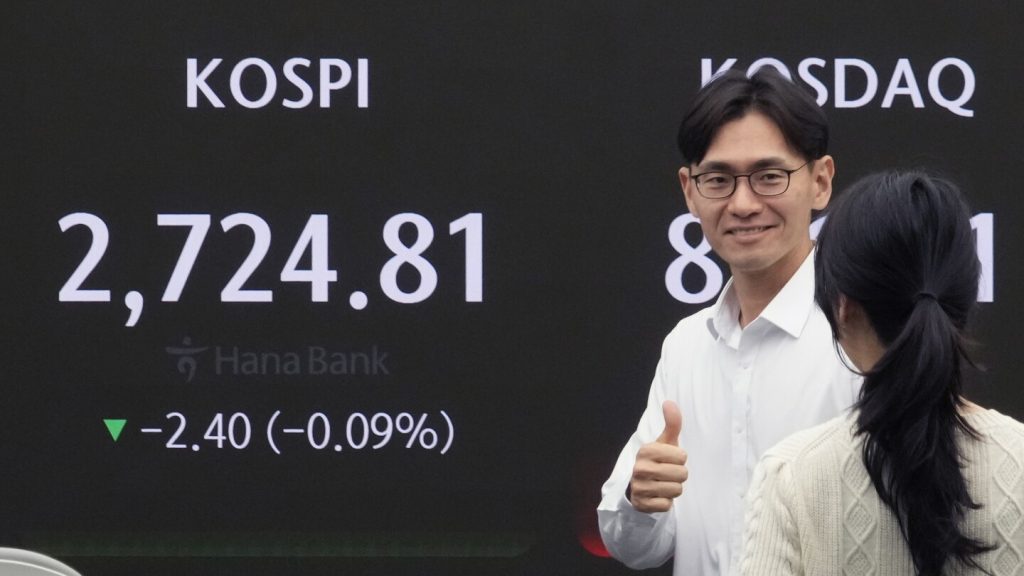Global shares were mixed in muted trading on Tuesday, with France’s CAC 40 slipping less than 0.1%, Germany’s DAX shedding 0.2%, and Britain’s FTSE 100 rising nearly 0.2%. In the U.S., future contracts for the Dow Jones Industrial Average and S&P 500 were little changed. Japan’s Nikkei 225 gained 0.5%, while Australia’s S&P/ASX 200 slipped 0.3%. Investors were watching for indicators on inflation to gauge economic growth and the strength of the dollar, with Chinese markets flat ahead of expected tariff announcements from the Biden administration.
Market analyst Luca Santos highlighted the significance of the day for Germany and the U.S. as crucial economic data was set to be released, focusing on consumer price data from Germany and producer costs in the U.S. The S&P 500 edged down slightly, remaining within 0.6% of its record set at the end of March. Stocks have rallied this month on hopes that inflation may ease enough to convince the Federal Reserve to cut its main interest rate later this year, with key data on inflation releases expected on Wednesday, along with updates on inflation that wholesalers are seeing and U.S. retail sales.
Hopes are high that the economy can avoid “stagflation” and maintain a balance between cooling inflation and avoiding a recession. Federal Reserve Chair Jerome Powell’s comments about the Fed’s stance on interest rates have provided comfort to financial markets. Earnings season is nearly finished, but upcoming reports from big names like Walmart could offer more insight into how U.S. households are faring amid concerns about cracks in consumer spending, particularly among lower-income households. The Biden administration is anticipated to announce an increase in tariffs on various imports from China, which could include a quadrupling of tariffs on electric vehicles to 100%.
In other trading news, benchmark U.S. crude lost 17 cents to $78.95 a barrel, while Brent crude fell 18 cents to $83.18 a barrel. The U.S. dollar rose against the Japanese yen, costing 156.45 yen. The euro also saw a slight decrease in value. Overall, global markets are closely monitoring economic data releases, inflation indicators, and tariff announcements as they navigate uncertainties related to the strength of the economy, inflation rates, and trade relations between major global economies. Investors are also keeping a close eye on upcoming reports on retail sales and wholesale inflation to assess the broader economic landscape and potential implications for financial markets.


